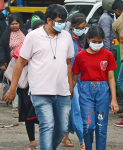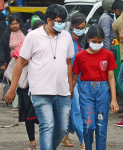
London: Mental health problems and mental disorders are common in the working population and 15 per cent of adults of working age experience mental health disorders — with depression, anxiety and substance abuse being the most common, according to a significant paper on the workplace as a major determinant of health published in The Lancet.
Workers with mental health disorders are at increased risk of sickness absence, unemployment, permanent exit from employment, and lower lifetime income, which, in turn, can exacerbate mental disorders.
Mental disorders incur substantial costs for workers, employers and the whole of society. Carried by Ireland-based University College Cork (UCC) researchers for the Lancet series on work and health, the paper that came out on Thursday illustrates that major progress in population health can be made by an increased focus on improving people’s work environments.
“Workplaces have huge potential to influence mental health by promoting the positive aspects of work and providing safe, non-discriminatory support for those showing signs of mental health problems,” said Birgit Greiner from UCC School of Public Health.
Greiner and Professor Ella Arensman co-authored the article with academics from universities in Europe, Japan and Australia.
The report outlined recommendations for decision-makers to support healthy and safe work for diverse populations.
“Governments need to ensure that the workplace is an integral part of their mental health strategies. Policymakers at local, national and international levels need to regulate and control working environments — evidence suggests an increased risk of mental health problems and mental disorders in adverse conditions,” says the paper.
Policymakers should also develop and improve policy on mentally healthy work, with a particular focus on the work environments of low-wage or marginalised workers.
They need to develop guidance on how to create and maintain mentally healthy work at all levels of an organisation which includes promoting training programmes.
“Governments should improve support and workplace conditions to enable individuals with mental health problems and disorders to be part of the workforce,” the study stressed.
“Organisations now need to take a second step and augment these programmes with proactive initiatives to improve work organisations and working conditions. This is not just a moral imperative but necessary for employers to meet legal and ethical mandates on psychologically safe work environments,” said professor Arensman.
IANS



















